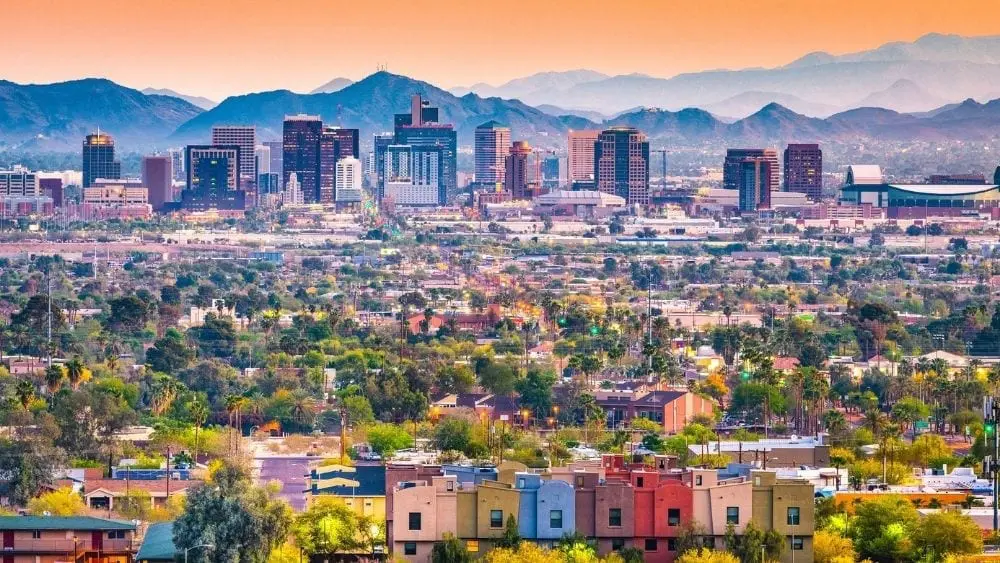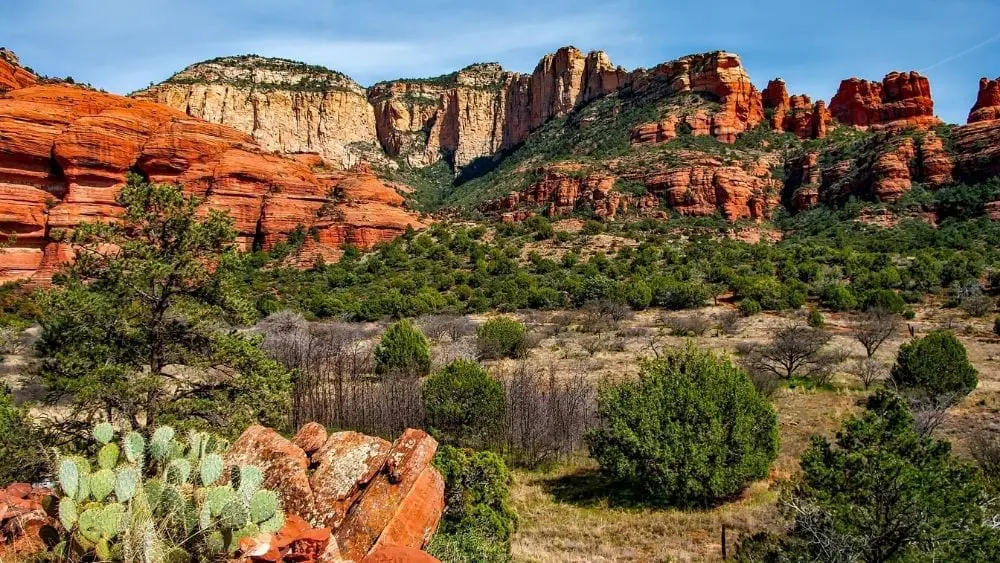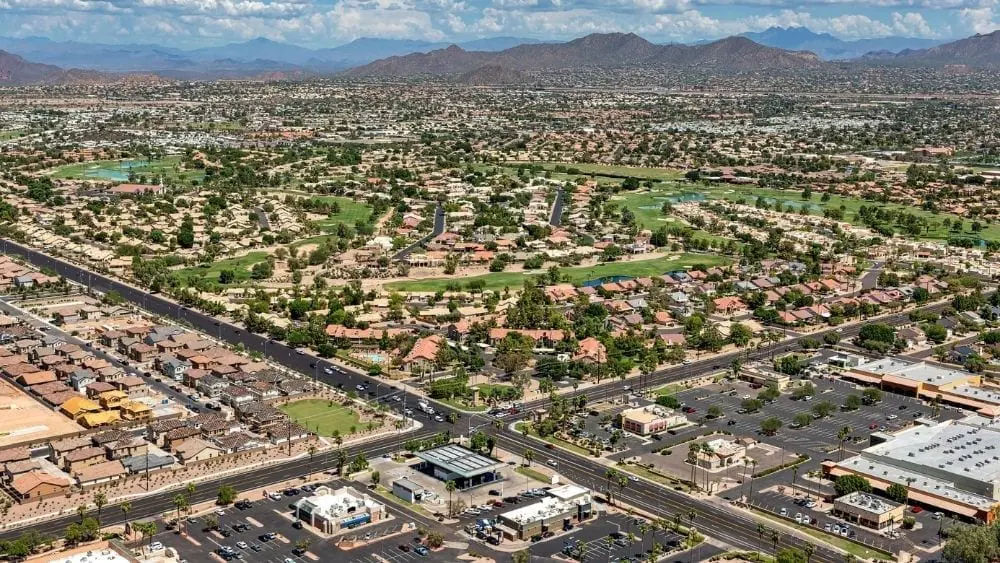
From its desert climate to the stunning views of the Grand Canyon and the red rocks of Sedona, it’s no wonder why homebuyers zero in on Arizona when searching for their dream house.
You’ve saved up for a down payment, you’ve got your financial ducks in a row to secure a home loan, and you’ve put in an offer. But have you prepared for closing costs?
Closing costs are yet another major expense homebuyers in Arizona need to brace themselves for. Thirty-five percent of Americans are caught off guard by how costly closing fees are, while another 17 percent didn’t even see this required expense coming. Mortgage insurance, taxes, title insurance and appraisal fees were some of the expenses that most surprised homebuyers, according to a 2017 poll conducted for ClosingCorp, which researches residential real estate data.
In a nutshell, closing costs encompass the final leg of services you’ll need before you secure the keys to your new home. We’re talking about all the administrative and legal services needed to finalize your home sale, from the origination fee, title search, appraisal and home inspection. You’ll also need to lock in homeowner’s insurance, mortgage insurance, and title insurance so all of your bases are covered. With so many moving parts, these fees are usually grouped together and paid for in one single sum as your closing costs. And in Arizona, homebuyers are usually the ones on the hook for these costs unless they’ve negotiated with the seller.
So how much are closing costs in Arizona and how should homebuyers prepare for this expense? Here’s a closer look at what’s typically included in closing costs in the Copper State and how Arizonians can save some cash on this step in the home-buying process.
How Much are Closing Costs in Arizona?

Nationally, Americans should expect to pay about two to five percent of their mortgage in closing costs, or about $6,087. This amount includes taxes for the purchase of a single-family home, according to a 2021 report by ClosingCorp.
However, this figure will fluctuate, depending on the state you live in, the home’s price, and what homebuyer assistance programs are available to help you foot the bill.
If you’re curious, the states with the highest average closing costs in 2020 were District of Columbia, New York, Pennsylvania, Washington and New Jersey, while those with the lowest were Missouri, Indiana, Arizona, Arkansas and Iowa.
You read that right – Arizona has the fourth lowest closing costs in the country. Homebuyers can expect to pay just $1,662 on a new home priced at the state’s national average of $271,904. That makes up just 0.61 percent of your home’s purchase price.
These figures are based on a homebuyer applying a 20 percent down payment, so paying for private mortgage insurance isn’t included in this figure.
It’s worth noting that there are about a dozen states that don’t have real estate transfer taxes, and this includes Arizona, as of 2008, so that’s another burden you don’t have to worry about.
Here’s another perk: in Arizona, buyers and sellers typically split escrow costs, and buyers can even try their hand at negotiating on who is going to pay for which components. In the Grand Canyon State, buyers traditionally cover all lender fees. These include your loan application fee, underwriting fee, mortgage insurance and prepaid interest.
Your closing costs are due when you sign off on your home loan on “closing day.” This is typically when your down payment is also due, which makes for one extravagant day of spending.
What’s Typically Included in Arizona Closing Costs?

Homebuyers may be wondering what’s included in a closing costs bill that runs up to $1,600. Think of it this way: you’re paying for two different set of costs – your property-related fees, such as your home inspection and property taxes, and your mortgage-related fees, which include loan application fees and private mortgage insurance.
Here’s a closer look at what to expect in the breakdown of your closing costs bill in Arizona:
Loan origination fees
Your lender charges you an initial fee to initiate and process your loan application and complete any required underwriting. It’s going to a pretty big chunk of change – in Arizona, it’s typically about one or two percent of your loan amount.
Credit report fee
During the underwriting process, your lender will check your credit score before offering you a loan. Expect the lender to pass along this $25 expense to you
Appraisal and home inspection fees
Once you’ve been pre-approved for a home loan, you can start house hunting.
Before a lender dispenses funds, you’ll need to reach a few more checkpoints: your appraisal and home inspection.
In this case, your lender will send a third-party appraiser to your potential new home to make sure it’s in sound condition and is priced at the right amount. That way, if you default on your mortgage, your lender knows they can sell the property to make up for the outstanding balance. You’ll also need a home inspection for two things: to make sure everything is in good running order and to flag any repairs you may need to ask the seller to fix before finalizing the deal.
These two steps are crucial in the home-buying process and, well, the onus is on the buyer to pay for these professional assessments. Plan on spending $300 to $600 for each of these services, depending on where you live in Arizona and the size of the home.
Escrow fees
In Arizona, you’ll be paying either a title company or an individual title agent to manage your closing costs. They act as the neutral third party between you, the buyer, and the seller or home builder.
Count on your title company to help you through every step of your closing process, from helping you purchase all the necessary insurance policies to meeting with you and your seller on closing day. Title companies also hold your funds in a third-party escrow account. They’ll only release these funds to all the appropriate parties when you’ve finalized your home purchase.
How much you’ll shell out on escrow fees will depend on the price of the home. The Arizona Department of Insurance and Financial Institutions says you can expect a rate of $850 for homes valued at up to $100,000, while homes that are in the $300,000 to $500,000 price range come with escrow fees of between $1,150 and $1,250. Home sales of up to $1 million command a $1,750 bill paid to your title company.
Keep in mind, this expense is often split between buyer and seller in Arizona.
Real Estate Transfer Tax
While homebuyers in 37 states come across “real estate transfer taxes” at some point prior to closing, Arizonians are exempt from this cost. These fees are local and state government taxes that are paid as the seller transfers the home to the buyer. They often come with a price tag of $0.50 per $500 of your home’s purchase price. Some states even charge a recording fee for this transfer of property.
You can breathe a sigh of relief because this isn’t the case in Arizona. In 2009, the state ushered in Arizona Proposition 100 – nicknamed the “Protect Our Homes Act – which prohibits taxes or fees on the sale or transfer real estate.
Try not to confuse real estate transfer taxes with property taxes, though. You’re still on the hook for those!
Flood certification
Arizona is home to both flash floods and regional floods that can last for weeks or months. Both can cause substantial damage to homes, especially during the state’s monsoon season.
Flood certification is an extra step for homebuyers in Arizona – it provides an official document stating the property’s flood zone status and is handed over to insurance providers. This fee is around $10 to $50.
Notary fees
During your home-buying and closing process, you may need to hire a lawyer to draw up, review, or certify contracts, deeds and other legal documents.
You can expect to pay your attorney about $250 in Arizona.
Private mortgage insurance
If you aren’t providing a 20 percent down payment, your lender will expect you to buy private mortgage insurance. PMI allows borrowers to qualify for a conventional loan even if they put down only 5 percent to 19.99 percent of their mortgage. In Arizona, it’s typically arranged by your lender and issued by private insurance companies.
To be clear, while you’re the one paying for the insurance, the coverage is for your lender. Because you haven’t put down 20 percent, PMI protects your lender in case of loan default.
PMI ranges from 0.25 percent to as high as 2.25 percent of your outstanding loan balance, depending on the size of your down payment and your credit score.
Title search and title insurance
When you buy property – whether it’s a new build or an existing home – you must confirm that you’re going to own it free and clear. In this case, you’ll need to pay your title company to conduct a title search to ensure the land has no liens or lawsuits in progress. Expect to pay your title company about $700 for this important legwork. It may even cost more, depending on the complexity of the historical records on the property.
After the title search, you need to take out title insurance as a safeguard. If the title search misses something, title insurance acts as a second layer of defense so you aren’t responsible for any surprises. Lenders often make this a mandatory buy in Arizona, meaning you won’t get your mortgage loan unless you purchase this insurance.
Homeowner’s insurance
Whether you’re in Arizona or elsewhere across the country, your lender will require you to take out homeowner’s insurance and have the first six months to a year of coverage paid in full at closing. Homeowner’s insurance is crucial to have in effect by closing because it’ll cover any physical damage to your home caused by fire, wind, vandalism or theft.
This is a “prepaid” expense, meaning it must be paid in cash at closing and can’t be rolled into your home financing.
How Can I Lower My Closing Costs in Arizona?

Buying a new home is likely the biggest purchase you’ll make in your lifetime, but homebuyers can take steps to make it more affordable in Arizona. Here’s a look at some of the key strategies you can put into action that could lower your closing costs:
Closing cost assistance
There are many statewide and local homeownership programs available to homebuyers in Arizona. They can offer financial help in the form of down payment assistance, closing cost assistance and even mortgage credit certificates that are generous tax breaks that last for the life of your home loan. While some states only provide this assistance to first-time homebuyers, this isn’t a caveat in the Copper State.
If you’re buying in Arizona, it’s worth looking into the Home Plus Homebuyer Down Payment Assistance Program, which helps income- and credit-eligible homebuyers with a 30-year fixed-rate mortgage, down payment assistance of up to five percent and closing cost assistance if needed. There’s also the Pathway to Purchase program, which provides up to 10 percent of your home’s purchase price in down payment and closing cost assistance. This program is only applicable in specific zip codes, including Bullhead City, Casa Grande, Glendale, Green Valley, Kingman, Phoenix, Rio Rico and Tucson.
Always conduct your research on local homebuyer assistance programs. Homebuyers in Maricopa County, for example, can apply for up to six percent in down payment and closing cost assistance, while Mesa has its own Homeownership Assistance Program that specifically helps to shoulder your closing costs.
Phoenix has two homeownership programs: one hands out up to $15,000 in grant money to first-time homebuyers in the low-income category for their down payment and closing costs.
Seller concessions
Work with your real estate agent to try to negotiate some or all of your closing costs from your seller, whether you’re buying a new build from a property developer or you’re buying a repeat sale home.
If you’re buying a new home but need to pay for upgrades, you may be able to compromise with your builder so they cover your closing costs. It’s a win-win for both parties – your builder sells another lot while you can free up cash to upgrade appliances or add in hardwood floors or crown molding.
If you’re buying an existing home, you could negotiate with your seller to have them pay a portion of your closing costs. You could, for example, accept a seller’s price on the condition that they agree to pay for your closing costs. If you’re in a buyer’s market, you could ask the seller to cover your closing costs so they can close the deal.
No-closing-cost mortgages
Another way to avoid closing costs is to decide on a “no-closing-cost” mortgage. In this case, your lender agrees to pay for part or all of your closing costs, but you in turn pay a higher interest rate.
In the long run, this could cost you more money because of the bump in your interest rate but for some homeowners, it may be their best choice.
Adding closing costs to your home financing
If you don’t have the upfront cash to cover your closing cost expenses, you may be able to roll this cost into your home loan. This means you’re off the hook for paying for these expenses on closing day but you’ll make up for it via monthly mortgage payments that will be a bit higher. Ultimately, you’re paying interest on the closing costs tacked onto your first mortgage.
Check with your lender to see if this option is available. Keep in mind, not all closing costs can be included because some, such as homeowner’s insurance, must be paid upfront.
Other Arizona Resources

Carmen Chai is an award-winning Canadian journalist who has lived and reported from major cities such as Vancouver, Toronto, London and Paris. For NewHomeSource, Carmen covers a variety of topics, including insurance, mortgages, and more.
 Choosing the Best Window Treatments
Choosing the Best Window Treatments